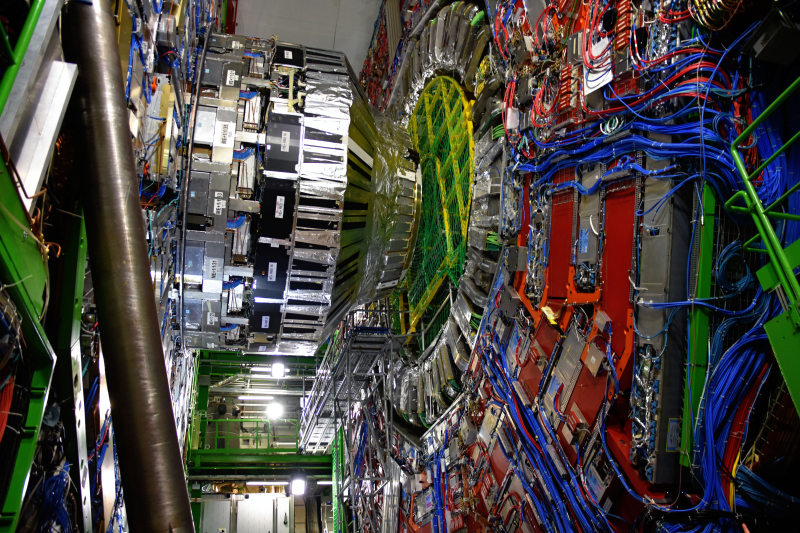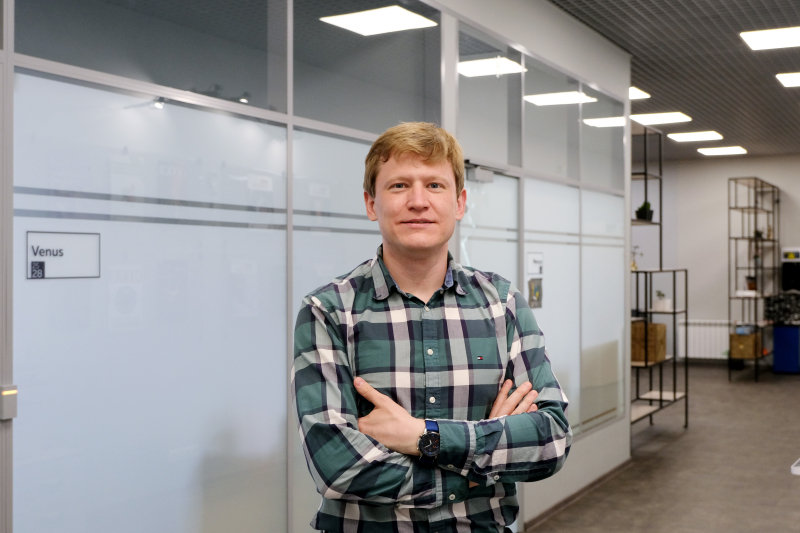Thank you for joining us today! Let’s start with the basic question can you explain what quantum physics studies in simple terms?
All physics is quantum. But the thing is that quantum properties are not always visible. Usually, they are observed on a very small scale but not on macroscopic objects, which are usually governed by the laws of classical physics. However, even that is not always true: there are black holes, for instance, or the Large Hadron Collider – there, quantum physics can be observed at the macroscopic scale. But in our daily life, we do not see the quantum properties of objects or, even if we do, we may not realize it; our very receptors can only observe the classical properties of the world.
So, is scale the only difference between quantum and classical physics?
At a very basic level, we could say that quantum physics is used to describe the microworld, while the macroworld is governed by classical physics. However, many macroscopic objects can be described with quantum physics – you just have to know where to look.
Here’s an example: in tennis, a ball, a classical object, is hit by a racket, another classical object – therefore, they obey the laws of classical physics. However, if we were to create “atomic tennis,” then the “ball” (one atom) could go flying off in two directions at once. So, a single particle will obey the laws of quantum physics – but a group of atoms put together form a classical object and follow different laws.
Interestingly, the color of the sky can only be explained with quantum physics: some wavelengths of electromagnetic waves pass through Earth’s atmosphere, while other wavelengths don’t. This is a demonstration of their quantum properties.
Is it truly the hardest branch of physics?
Quantum physics is indeed not that simple, but I think what confuses people is how counterintuitive it is. Our brain is wired to process classical objects, our daily experience is perceiving classical physics. That’s why when we see something different, we perceive it as unnatural. In our daily life, we just don’t observe objects flying in two directions at once – it’s counterintuitive.
Why do you think it is such a popular concept?
I believe that for many people, the exciting, unknown, and unexplainable has taken the place of religious or esoteric beliefs. It’s fascinating to have a concept that we cannot fully explain. This mystery is what makes quantum physics so attractive.
Sometimes, this popularity is also hyped up by scientists themselves and science communicators. On the one hand, it’s important to maintain a connection between researchers and the public. On the other hand, it sometimes does more harm than good when research is sensationalized beyond measure and the actual findings are twisted or even fully misinterpreted. This, I think, has also contributed to the awe surrounding quantum physics. So, good-quality science communication is essential.
The Large Hadron Collider. Credit: SimonWaldherr / CC-BY-SA-4.0 / Wikimedia Commons
So, for many people, quantum physics is just like magic that can make things happen. Perhaps in contrast to this belief, my next question is if there are any technologies now that already use quantum effects?
Every smartphone, tablet, or TV contains transistors that rely on quantum effects. You can see how quantum physics has become an integral part of our lives.
A less common example, at least in Russia, are superconducting magnetic levitation trains, or maglev for short. There, a superconducting magnet is cooled to extremely low temperatures, which brings its resistance down to nearly zero. The electric current inside the magnet can circulate nearly freely, creating a powerful electromagnetic field – powerful enough for a train to levitate on it. This technology is also entirely based on quantum effects.
This is a surprising answer! We rarely acknowledge that quantum technologies are so ubiquitous. If the devices we have now are already based on quantum physics, how are they different from the hot-topic quantum computers?
The computers that we do have, even though they utilize quantum effects, are still implemented using classical mechanisms, whereas the quantum computers now in development are based on quantum entanglement.
In simple terms, the binary code at the core of our current digital technologies is strictly classical. Quantum computers are based on essentially quantum effects, like quantum entanglement and non-locality. This makes them extremely unstable, which is the main reason why we still don’t have a full-scale working quantum computer, only prototypes.
Will quantum computers for consumers ever take the place of our regular PCs?
It's very likely. They'll be just like the ones we have today, but faster and more efficient.
If you take a look at the evolution of CPUs over the past decade, you wouldn’t see any great advances – especially compared to the breakthroughs of the decade before last. That’s why commercially available quantum computers will be the next qualitative improvement, a leap forward in computational speed and efficiency. However, we cannot really approximate when such technologies would be made possible – they all depend on exploratory research: we know what to look for, but we are not sure how to get there. It might take years, or even decades.
What other promising technologies can come out of quantum physics?
There are actually multitudes of breakthroughs waiting to happen, but superconductivity and quantum computers are the ones most talked about. With the former, the quest is to create superconductors that would retain their properties at room temperature. If successful, this will cause a revolution not only in, say, accelerator physics or superconductive trains, but in all of our electronic devices that rely on (semi)conductors. We would no longer waste so much energy as heat in conductors, and every device would become much more efficient.
Another key research area are optical signals that utilize several particle states instead of the conventional two. The aim here is to make it possible to encode more information within one quantum of a signal.
Your research is focused on quantum entanglement. What are its potential applications?
My team and I are fundamental researchers, which means that we come up with the technologies themselves – not necessarily their applied forms. One of our projects is to use quantum entanglement to produce single particles in special quantum states. Essentially, this means that we are shaping a wave of particles – a simple visualization would be to imagine traces left by boats on water: they change the shape of the already existing waves.
Though this might sound simple, it’s actually quite an advanced technology for any kind of particle, apart from photons. For electrons, this is achieved with an electron microscope. We are working on introducing this idea into high energy and accelerator physics, the two areas where particles have traditionally been thought of as single objects, not waves.
Our theoretical research delves into what will happen if we change the shape of particle waves in collider experiments, which is a brand-new approach. We also try to predict the effects that would be produced in such experiments, as well as what effects and technologies could be used to achieve it. So far, quantum entanglement seems very promising. A significant result of this research project would be conceptually new technologies – for instance, in substance diagnostics.
Quantum computer. Credit: IBM Research / CC BY-ND 2.0 / flickr.com
Can you tell us something about quantum teleportation, another hot topic that fascinates the public?
I should note that it’s not like teleportation is portrayed in sci-fi. Currently, the studies in this area aim to produce exact copies of a given object – which is actually impossible. There’s the so-called no-cloning theorem, which states it’s not possible to fully recreate a given object, because it isn’t possible to fully describe it. This comes down to quantum uncertainty: you cannot measure both a particle’s speed and its location; you will only ever know one variable or the other.
However, experiments with reproducing the most exact copies of particles are ongoing. It’s a promising area of research with potential applications, for instance, in quantum cryptography.
What would you recommend to students who are considering a career in quantum physics?
It's an exciting field that is actively developing, so joining it is a great idea. If you want a primer on it, I’d recommend pop-sci blogs (in Russian, one trusty source is N+1) and books by world-renowned physicists, like Steven Weinberg and Stephen Hawking. You could also watch their talks and lectures on YouTube. However, don’t overdo it. All of this would give you a basic understanding of the field, which you would later build on with more serious literature.
You can learn about Dr. Karlovets’ recent work from this article about his team’s quantum entanglement research. And here you can find a brief introduction to quantum physics.




